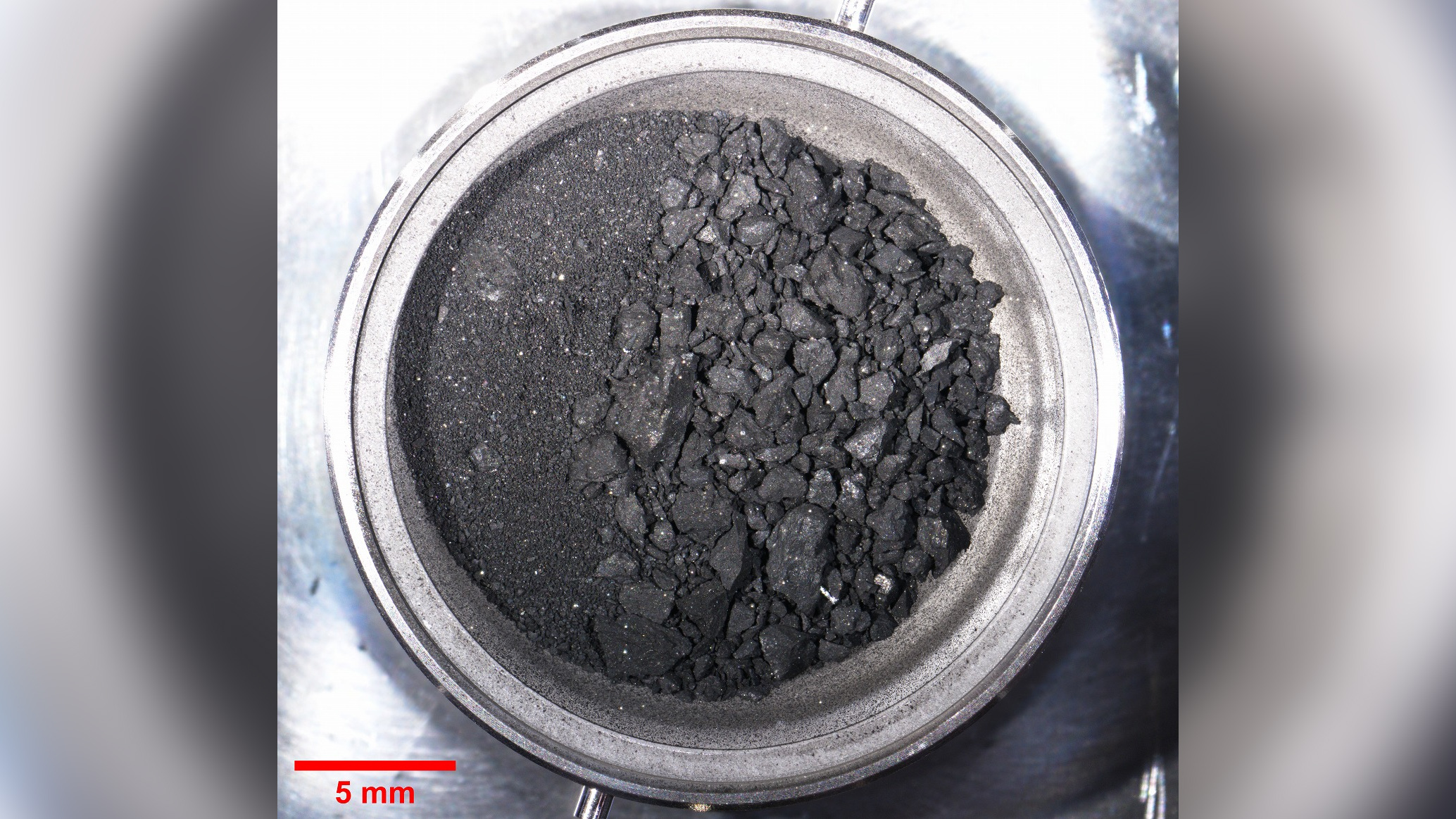
A rock retrieved from a near-Earth asteroid is crawling with microbial life, scientists have discovered. But the bacteria on its surface almost certainly came from Earth.
The sample is part of a 0.2-ounce (5.4 grams) chunk of rock that Japan's Hayabusa2 spacecraft scraped from the surface of the asteroid Ryugu and brought back to our planet in 2020.
After the spacecraft landed back on Earth, researchers opened the rock in a vacuum room located inside a clean room to prevent contamination, before storing it in a room flooded with pressurized nitrogen. Then, samples were placed inside nitrogen-filled canisters to be shipped around the world for analysis.
But it seems that somewhere along the way, for one sample of this rock, these preventative measures were not enough. The scientists behind a new study found that one sample, which was embedded in a resin at Imperial College London in the U.K., had filamentous microorganisms, closely matching terrestrial prokaryotic bacteria, crisscrossing its surface. They published their findings Nov. 13 in the journal Meteorics and Planetary Science.
Related: NASA's OSIRIS-REx mission almost bit the dust — then Queen guitarist Brian May stepped in
"The presence of microorganisms within meteorites has been used as evidence for extraterrestrial life, however, the potential for terrestrial contamination makes their interpretation highly controversial," the researchers wrote in the study. "The discovery emphasizes that terrestrial biota can rapidly colonize extraterrestrial specimens even given contamination control precautions."
Scientists have long debated whether the blueprints for life on our planet originated here or came from the heavens. Previous analyses of meteorites found on Earth have revealed that some of these space rocks contain the five nucleobases essential for organic life.

But whether the compounds came from space aboard the rocks or contaminated the meteorites after their arrival on Earth has long been an open question. The Hayabusa2 mission was one attempt to address this, and with some success — parts of its sample contained amino acids and even the nucleobase uracil.
After receiving their sample, which was shipped from Japan to the U.K. inside its container, the researchers scanned the space rock using X-rays and found no signs of bacteria on its surface. Then, after three weeks, they moved the sample into a resin, studying it more closely after a subsequent week using a scanning electron microscope (SEM).
Surprisingly, their results revealed rods and filaments of organic matter teeming over the sample's surface.
Yet to the researchers' disappointment, the growth rates, shapes and sudden appearance of the bacteria all matched closely with microbes found on Earth, suggesting that the sample became contaminated sometime after being placed inside the resin.
This means the chunk of asteroid is unlikely to reveal any unambiguous insights into the contents of Ryugu's surface, but it doesn't mean it has nothing to teach us. Beyond flagging the importance of extremely stringent decontamination procedures for samples retrieved from space, the researchers said their study also highlights the incredible adaptability of microbes — which rapidly consume organic material from anywhere, no matter the planet.
"The presence of terrestrial microorganism[s] within a sample of Ryugu underlines that microorganisms are the world's greatest colonizers and adept at circumventing contamination controls," they wrote. "The presence of microorganisms within space-returned samples, even those subject to stringent contamination controls, is, therefore, not necessarily evidence of an extraterrestrial origin."







